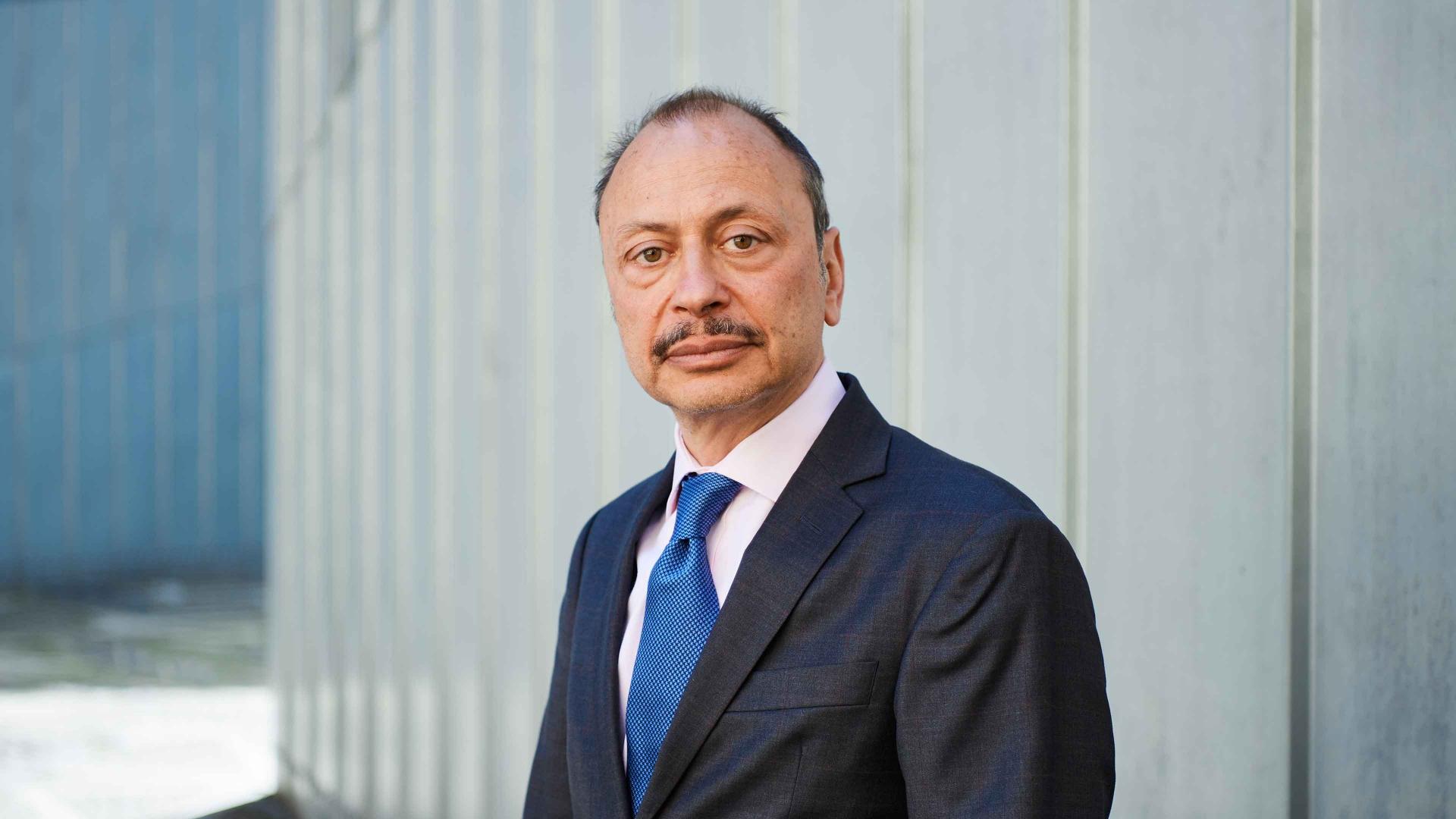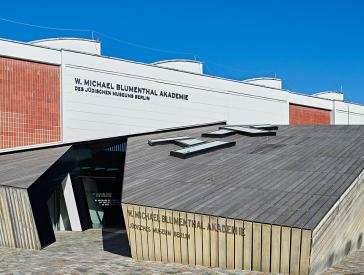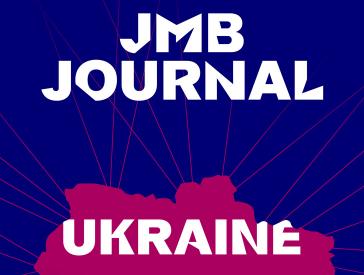Historical Depth
An Interview with Daniel Wildmann

Daniel Wildmann; Jewish Museum Berlin, photo: Yves Sucksdorff
Dr. Daniel Wildmann has been program director of the W. Michael Blumenthal Academy at the Jewish Museum Berlin since 15 September 2022. After career stops in Zurich, Berlin, and Jerusalem, the historian and film scholar spent six years directing the Leo Baeck Institute London, which is dedicated to the study of German-Jewish history and culture, and served as Senior Lecturer in History at Queen Mary University of London.
Welcome to Berlin, Mr. Wildmann! You just moved here from London. What will you miss the most?
The British way of life, especially British irony! And definitely the elegant and playful men’s fashion, a London specialty.
And what are you looking forward to in Berlin?
The work in the museum, especially in the context of Berlin’s rich history, and my many new colleagues.
You worked at the Leo Baeck Institute London for several years. What parallels do you see with the JMB Academy? What are the differences?
The Leo Baeck Institute is a research institution and deals primarily with texts. A museum is mostly focused on objects. What the two institutions have in common is that they both tell stories and seek to provide new perspectives on German-Jewish history. But in a very different language! Another very important difference is the political and cultural system in which the two institutions are rooted. Great Britain is a monarchy with an imperial past, which became quite evident with the remarkable funeral processions for the late Queen. Here in Germany, our head of state is elected in a parliamentary process, and our past has been influenced by other factors.
You’re a historian and film scholar. Berlin, host to the Berlinale, is an important film city. Will this influence your work as the director of the academy?
Visual language has always influenced my work, whether in Zurich, Berlin, Jerusalem, or London. I used to work in the film industry and the Berlinale was one of my absolute favorite film festivals. It’s nice to be close to the action once again.
What makes for a successful academy program?
If our programs and projects provide new perspectives on German-Jewish past and present and encourage our audiences to think, then they’ve been successful. As regards the many topics that will keep us busy in the future, what’s important for me is historical depth and insight, which we’ll achieve and communicate through images, texts, dialog, and discussions.
Museums see themselves as places of participation. This also applies to an institution like the academy. How do the interfaces between academia and the public work?
Ultimately, it’s a question of translation. It’s about translating topics and contexts without losing accuracy or complexity. You have to do so in such a way so as to reach your audience. This perspective comes from
my experiences in London, where I presented German-Jewish history and culture to a broad, highly heterogeneous audience. Cultural translation made that possible.
Do you have a favorite museum?
I’ve only been in Berlin for ten days! But in London, it’s the National Gallery. The reason is that I’m very interested in light, and if you want to learn about light and how it’s perceived, you have to visit the National Gallery. It provides new insights for almost every century.
What can an institution like the academy achieve, particularly in times of crisis?
As Dan Diner once put it, German-Jewish history and culture can be seen as a seismograph of European history – an indicator of its positive and negative swings. The German-Jewish perspective can help us better understand crises. Our program Ukraine in Context also provides a historically informed view of a crisis – the current war in Ukraine – and uses Jewish-Ukrainian perspectives to do so.
What are the most important differences between Jewish life in Great Britain, Switzerland, and Germany?
In Germany, Jewish communities and their institutions are often the focus of public attention. This is different in Great Britain and Switzerland, where the Jewish communities and their institutions long remained in the background of political life. But that has changed in recent years. In Switzerland, this change was brought about by the debate on dormant assets in the late 1990s; in Great Britain, by the experience of rampant antisemitism in the Labour Party under its former leader Jeremy Corbyn. These moments of crisis forced the Jewish communities and their institutions in both countries to rethink their place in society, and they have been much more active and present in political life ever since.
The interview was conducted by Marie Naumann & Katharina Wulffius.
Citation recommendation:
Marie Naumann, Katharina Wulffius (2022), Historical Depth. An Interview with Daniel Wildmann.
URL: www.jmberlin.de/en/node/9505





